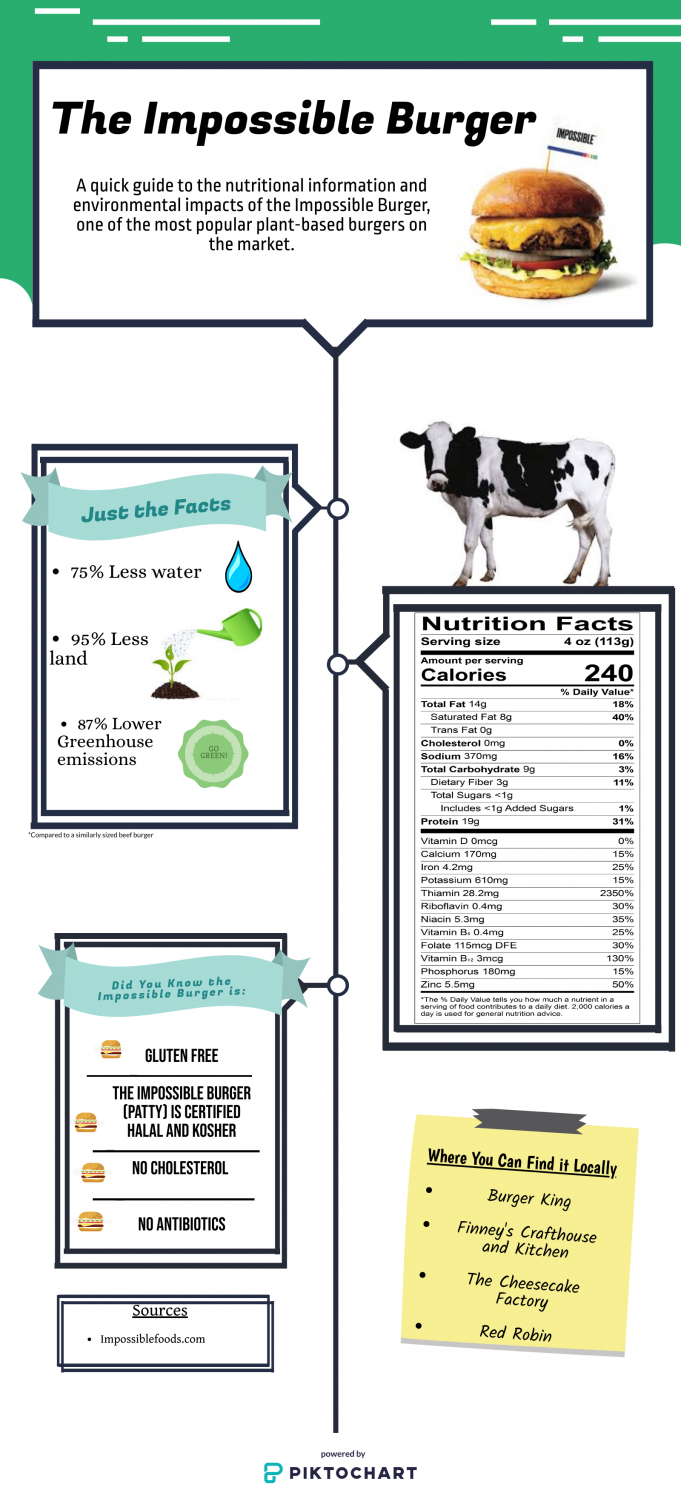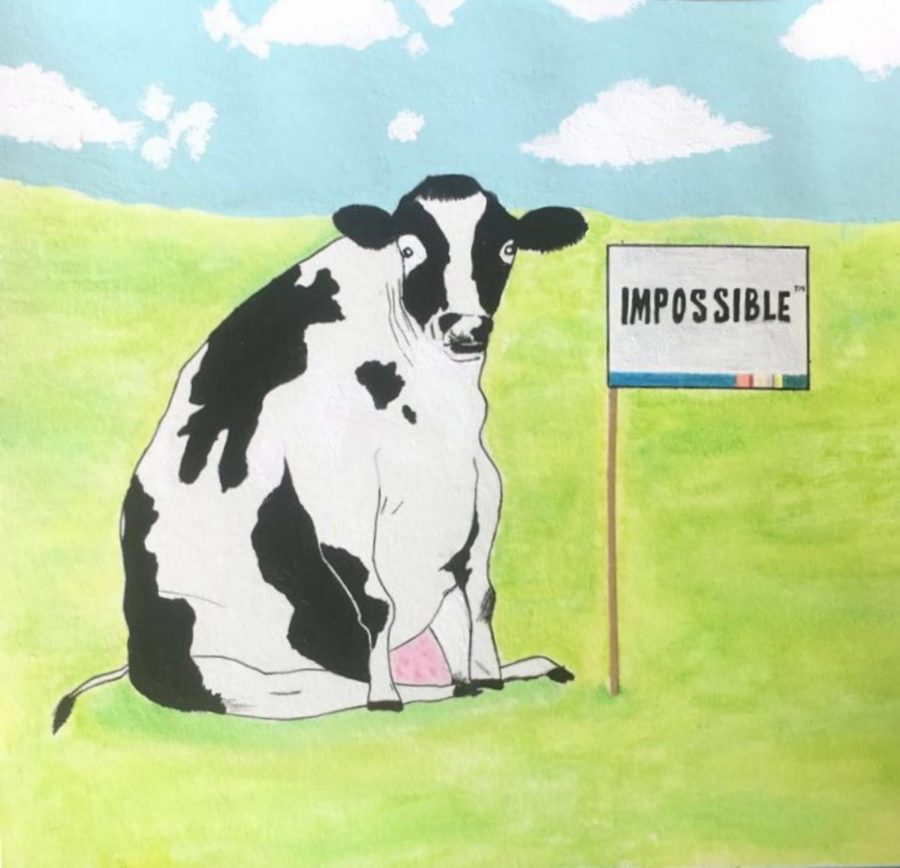Opinion: The New Wave of Plant-based “Meat” is the Future
Yahner argues the impossible burger will soon replace the traditional beef patty
September 15, 2019
The year is 2025. It’s the Fourth of July, and Uncle Joe is grilling burgers while the kids throw little firework poppers at each other’s feet. The sizzling patties finish cooking and are taken into the kitchen to be spruced up with a bun and condiments.
You probably think I’m referring to a good ol’ American hamburger cookout, cow tears and all. But alas, I hold the firm belief that in the near future, plant-based hamburger replacements such as the Impossible™ Burger will claim their rightful place in millions of American barbecues.
You may be wondering what exactly an Impossible Burger is and what makes it so impossible. It’s important to abandon your preconceived notions about what faux meat has been versus what it’s becoming. Try not to picture a tasteless, mushy bean burger that could never hold a candle to your Double-Double Animal Style hamburger. Instead, imagine a patty entirely comprised of plants that feels, tastes, cooks and even bleeds just like a beef patty. Sound impossible yet?

Breaking down the Impossible Burger
The mechanics behind the recently released burgers are not only fascinating, but groundbreaking as well. Scientists at Impossible Foods succeeded in finding and isolating all the different components of beef: the flavor, the fat, the protein and then pinpointing their exact vegetable counterparts.
For example, the protein in the plant-based burger is comprised of soy and potato protein concentrate, which allows it to contain nearly the same amount of protein as a beef burger. Perhaps Impossible Foods’ most impressive feat is their ability to isolate the singular molecule that gives meat its distinct flavor (heme) and find a way to create it sustainably out of plants.
Heme is an iron-containing molecule that’s abundant in every plant and animal—particularly in animal muscle tissue— that gives blood its red color and aids in the transport of oxygen. Scientists at Impossible Foods miraculously discovered that it’s this little molecule that makes meat taste like meat.
After years of rigorous trials, the company mastered the method of creating heme as cheaply and efficiently as possible, and officially released their beta version of the first commercially available Impossible Burger in 2016. The company initially tried harvesting the heme that occurs naturally in the roots of soy plants, but this method proved to be inefficient and would make large scale manufacturing of the product difficult.
Scientists then discovered that heme, identical to the kind found in animal tissue, could be produced by inserting DNA from the roots of a soy plant into yeast that would then be fermented. If this impressive feat of food engineering is off-putting or seems more like a science experiment to you, rest assured that you unwittingly consume GMO food products on a daily basis.
Critics and fans alike have complained that the Impossible Burger (or other similar plant-based meat products) are not inherently healthier than the average hamburger. They simply focus on the number of calories or fat content and neglect the other nutritional aspects of the burger. Unlike many beef burgers, however, the Impossible Burger contains no antibiotics or cholesterol.
Additionally, these arguments are misguided and only exist to dilute the enormous environmental potential of this impressive feat of scientific ingenuity. The Impossible Burger is not necessarily designed or marketed as an uber-healthy alternative, but more so as a complete replacement for hamburgers in the American diet. This is precisely why the plant-based burger is designed physically and nutritionally similar to a hamburger.
Despite the critique, the creation and the widespread popularization of the Impossible Burger are playing a vital role in the ideological shift in the American attitude towards how and what we eat.















Ian • Sep 17, 2019 at 11:05 am
Gross, I’ll move to Russia before I’m stuck eating a beef substitute.